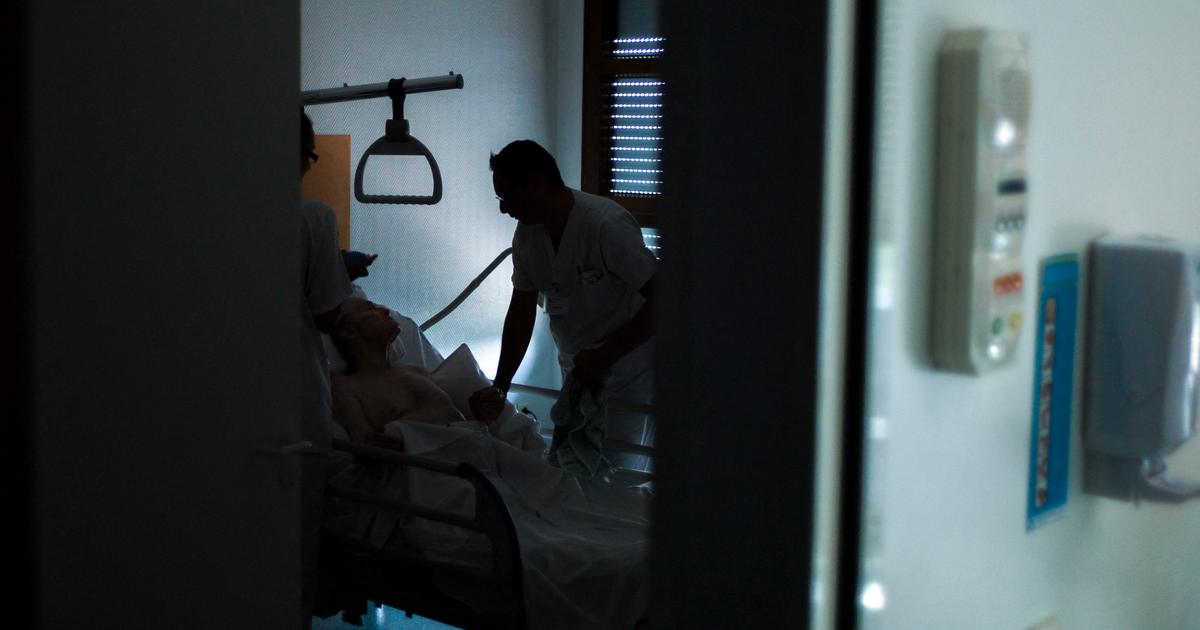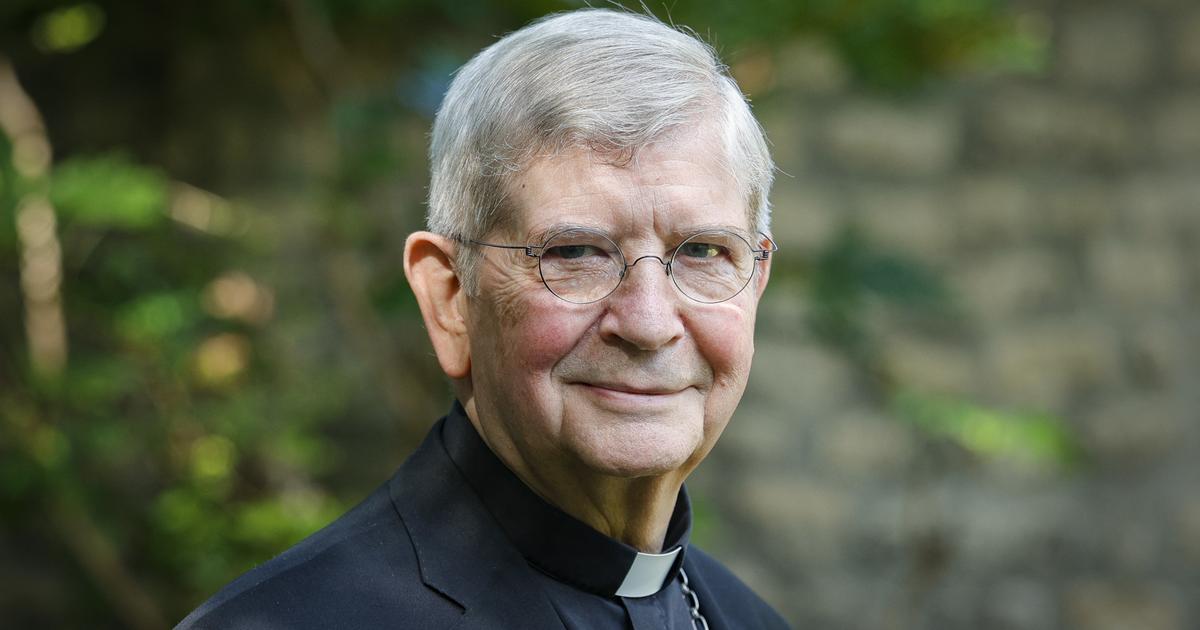When you are on your deathbed, you just want to be with your family and not suffer. Little more is asked, resolves honest Eduardo Bruera, oncologist and expert in palliative care. He knows what he's talking about. The doctor (Rosario, Argentina, 68 years old) launched in 1999 the department of Palliative Medicine, Rehabilitation and Integrative Medicine of MD Anderson in Houston, the largest in the United States, and has been there, at the bedside, accompanying in the end, too many times. "What I see is what's important to them. And they say that it is to be close to their loved ones, not to be a burden to them, to be free of suffering and also, in most cases, to reinsert their spiritual relationship," explains the oncologist, who visits Barcelona to be invested doctor honoris causa by the International University of Catalonia (UIC).
Bruera denounces the lack of investment in palliative care and the weight of the taboo that still surrounds death. The doctor criticizes, for example, the lack of a medical specialty in Spain of his discipline and the overtreatment of some terminal patients in the absence of a rigorous and structured approach at the end of life. "Death is going to come to all of us," emphasizes the oncologist, who claims to stop looking the other way and reinforce care at the end of life.
Read moreIn the trenches against childhood cancer: "Not only does the patient get sick, but the whole family"
Question. Is palliative care given little attention?
Answer. Unfortunately, too little attention is paid where attention is most needed. And that's in big hospitals, in medical schools, in places where decisions are made that are going to have long-term effects on how patients are treated. The existing paradigm right now is one based on disease, not patient, and the money goes to that. All hospitals have an intensive care unit and very few have a palliative care unit. And that doesn't make much sense because in all those hospitals people die.
Q. At university they are taught how to cure patients. If the patient dies, is it interpreted as a failure and therefore makes this area a taboo?
A. I totally agree. If I focus on the fact that my success is linked to curing the patient, the fact that it is not cured I take it as a personal and professional failure, I escape from that battle because I lost it and I run out to find another. It's an irony because 100% of us are going to die and it doesn't make sense to look for the cure of something and forget that that cured person is also going to die. Death is going to come to us all.
Q. But no one wants to talk about death.
A. They don't want to, and medicine doesn't want to invest in making that end of life less painful. Undoubtedly, when we reach the end of our life it will be a very difficult time, but it does not have to be so difficult. It is more difficult because we do not have the structures and processes to alleviate that unnecessary suffering.
Q. Why don't you want to invest in medicine?
A. I think it's a cultural issue. Since the development of antibiotic therapy, medicine became a little more ambitious in changing the natural history of diseases and all medicine was oriented to that: to cure, to the prolongation of life. And we forget a little bit that, in the end, we're all going to die. That cultural change brought by vaccines and antibiotics led us to abandon something that made us credible before, which was the treatment of the human, the relationship we established with the patient and the family, the way in which we could relieve and comfort when we had less means of treatment. What we try to do in palliative care is to reinsert that, not replace the healing intent.
Medicine doesn't want to invest in making the end of life less painful."
Q. If within society there is such a rejection of death and it is turned away, how is it possible to make the change in the medical field?
A. Changes must be made through accepting, recognizing and integrating palliative care units, where people who are suffering a lot arrive and are relieved in their physical, personal, spiritual, family suffering and die. There is much that can be done to decrease suffering, but if we do not have a clinical model, there is nothing to show, the taboo will persist and turning our backs on death, too.
Q. What can be done in this phase of life?
A. When I recognize that I have a disease that is not curable, 100% of the time I will have moral suffering, anguish, lack of certainty, sadness, sometimes anger, other times denial. And that's part of being alive. We cannot be alive and not suffer. It makes no sense to think that one can avoid that, but if my hospital turns its back on me, my doctor, I am excessively sad and defeated, there is no help for me, that suffering is exacerbated. It is not logical to think that this stage of my life will be free of suffering, but it is logical to think that much of that suffering can be alleviated for me and for my loved ones.
Q. How?
A. With structures and processes. I would like to say to a politician that he does not have to invest or create jobs, but I would also like to tell him that it is an extraordinary investment and I explain why: at this moment, when the patient with cancer or heart failure goes to see his doctor, he says: "Well, he is not responding well to treatment. Let's try another month." And that other month of immunotherapy is tremendously expensive. Lab studies and radiology are tremendously expensive and generally not very helpful, but it's the element that doctor has to give you hope and it takes you 10 minutes of time. An argument about the disease not responding well could take an hour and a half, lead the patient to a situation that the doctor does not know how to handle because he is not trained and, then, what happens? Well, you end up spending a huge amount of money that is not very useful. Imagine a situation in which that oncologist says to the patient: 'Look, I don't know if there is treatment, but there is Dr. Bruera, who is here next door and who is going to help me a lot: I see that patient, I spend time with him and he does not receive a very expensive treatment, he receives me. There is a human hope, because the suffering of the patient and the family is alleviated, but there is also an economic hope.
Q. Are too many useless therapies being administered in the end?
A. Yes. And they are given with good intentions, because that is what I can do. But they don't do much good. And they cost a lot and can be toxic. But it's what I have.
Q. Is the machine pushed to the end so as not to assume they can't do more?
A. Because I don't know what I can do, I don't know how to say it, how to handle it and I don't have anyone, I don't have a palliative structure next to me to help me. I am alone, as an oncologist, as a cardiologist, as an internist. I am alone in front of the patient with the knowledge I have. And I do the best I can do. There are no good guys and bad guys in this movie. The problem is the film itself.
Dr. Bruera, in the gardens of the International University of Catalonia in Barcelona, where he has been invested doctor 'honoris causa'. MASSIMILIANO MINOCRI
Q. What is the current x-ray of palliative care?
A. We know we can do more. We know a lot more, but we don't reach patients as we should because we don't have the structure. We have incontrovertible evidence that palliative care greatly improves quality of life compared to conventional treatment, but we have not managed to make the investments to establish that this will reach it. I am very optimistic that we are evolving, but it saddens me that so many patients who are going to die this year are not going to access because we do not yet have the vocation to establish the structures.
Q. He said that they have learned a lot, but what do they need to know?
A. What you and I fear most, when we are diagnosed with cancer, is pain. Pain is a threat that is perhaps worse than death. If you come with a cancer today, to treat it I can give you a remedy that is probably no more than two or three years old, because there is a development, an investment, and there are many remedies. If what you have yourself is pain, I'm going to give you a remedy today that is 230 years old, which is morphine, which is still the number one treatment. How can it be that the same person to whom you give a new treatment for the tumor, when you are suffering from pain you are given a treatment that is 230 years old, that is not safe, that can produce addiction, that has side effects ...? We need to do more research on how to treat pain with more modern and evolved remedies. There are also no well-done enough studies on how to talk to the patient. There are many holes in our knowledge of suffering.
We have incontrovertible evidence that palliative care greatly improves quality of life compared to conventional treatment, but we have not been able to reach patients."
Q. Can suffering always be alleviated?
A. Suffering can always be alleviated. But can suffering be eliminated? I would say that, unfortunately, no. But I can comfort the patient, the family, stay by their side and accompany them. And that has a great relief effect. Transforming it into something that one can totally eliminate, I think it would not be humanly possible, but it can be greatly alleviated.
Q. In Spain, the euthanasia law was approved in 2021 and palliativists were critical of the rule. Can euthanasia coexist with palliative care?
A. Yes, perfectly. Most Spaniards when they are sick do not want to die, what they want is not to suffer. There will be a minority who want and those who may want to, and until the day they do, will likely benefit from palliative care.
You can follow EL PAÍS Salud y Bienestar on Facebook, Twitter and Instagram.

/cloudfront-eu-central-1.images.arcpublishing.com/prisa/ZIO257STZ5GZRMS67TLRZF3LP4.jpg)













